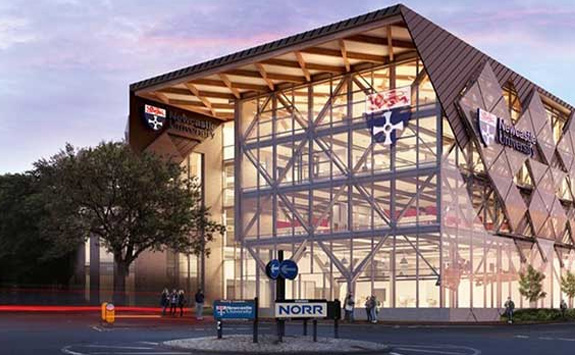- Who we Are
- Study with UsStudy with Us
- Undergraduate
- Find a Degree
- Subject Areas
- Applications and Offers
- Undergraduate Application Advice
- Step-by-Step Guide for UK Students
- Step-by-Step Guide for International and EU Students
- Applying through UCAS
- Entry Requirements
- Personal statements
- Application Decisions
- Access Schemes and Pathway Programmes
- PARTNERS
- Policies and Procedures
- Applicants with Disabilities
- Mature Applicants
- Deferred Entry
- Fees and Funding
- Scholarships and Bursaries
- Vice-Chancellor's Excellence Scholarships
- Vice-Chancellor’s EU Scholarships – Undergraduate
- Vice-Chancellor's International Scholarships
- International Foundation Scholarships
- International Family Discounts
- Opportunity Scholarships
- Subject Scholarships
- Sports Scholarships
- St Nicholas’ Educational Trust Scholarship
- NU Sanctuary Scholarships
- Tuition Fees and Costs
- Student Loans
- International Student Finance
- Scholarships and Bursaries
- Undergraduate Open Days
- Sign up and Discover
- School and College Outreach
- Information for Parents and Supporters
- Request a Prospectus
- Chat to Our Students
- Postgraduate Taught
- Postgraduate Research
- Global Scholarships
- Distance Learning
- Continuing Professional Development (CPD)
- Our Campus
- Student Life
- Student Blog - Belong
- Accommodation
- Your Future
- Work Placements
- Careers Service
- About the Careers Service
- Careers Service Events
- Work for Yourself
- Career Planning
- Careers Modules
- Making Applications
- Interviews, Tests & Assessment Centres
- Internships, Placements & Shadowing
- Finding Jobs
- Handling Job Offers
- Researching Employers
- Making Contacts
- Further Study
- Awards, Competitions & Project Funding
- Volunteering
- Boost Your CV
- Defence Technical Undergraduate Scheme (DTUS)
- Meet Us
- International Students
- International Pathway Courses
- Student Exchange and Study Abroad
- Request a Prospectus
- Key Dates
- Contact Us
- Your Academic Experience
- Undergraduate
- Our ResearchOur Research
- Research Impact
- Research Strengths
- Centres of Research Excellence
- Centre for Ageing
- Centre for AI Safety
- Centre for Behaviour
- Centre for Biomedical Engineering
- Centre for Cancer
- Centre for Children and Youth
- Centre for Climate and Environmental Resilience
- Centre for Cyber Security and Resilience
- Centre for Data Science and AI
- Centre for Energy
- Centre for Healthier Lives
- Centre for Heritage
- Centre for Industrial Biotechnology
- Centre for Landscape
- Centre for Mobility and Transport
- Centre for Rare Disease
- Centre for Researching Cities
- Centre for Transformative Neuroscience
- Centre for Water
- Research Culture
- Doctoral College
- Global Challenges Academy
- Research Excellence Framework (REF) 2021
- Research Directory
- Research Governance
- Research and Innovation Support
- Research Facilities
- Research Funding
- Work with Us
- Alumni
Engineering for the Future
The Stephenson Building has been the driving force of engineering at Newcastle University for 70 years. The new building will be a living legacy to the engineers who made our modern world.
The next generation of engineers
The Stephenson Building has a long history of training engineers that do great things, from building post-war Britain to developing biomedical engineering solutions. Since the 1940s, it’s been the home to more than 25,000 engineering students.
With a global population of 8 billion people, the world now faces a climate emergency. We need a new generation of engineers to create:
- cleaner technologies
- smarter cities
- advanced medical technology
Our new Stephenson building will be a home to engineers making the world a better and healthier place to live.

Stephenson: a collaborative community hub
The redeveloped Stephenson building will be the place for future engineers, researchers, designers, and visionaries to work together to tackle world challenges.
A community of collaborative action
The site will offer Newcastle’s engineering community the infrastructure needed for new:
- types of teaching
- types of research
- forms of partnership

Creating a facility for the 21st century and beyond
The Stephenson Building was designed in the 1940s. It's since been the home to more than 25,000 engineering students.
The building is a highly visible gateway to the University’s engineering quarter. Our ambition is to use the original footprint to create a 18,000 m2 cutting-edge building. It will provide extensive space for education, research and innovation and industrial collaboration.
International architecture and engineering practice Norr Group is leading the project. With a budget of £70m, completion is due late 2024.